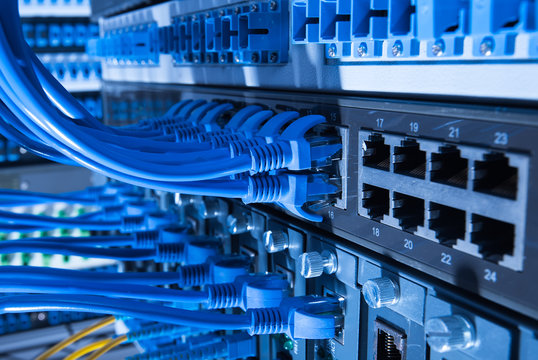The CCNA 200-301 Syllabus: What You Need to Know
The CCNA 200-301 certification serves as a pivotal milestone in the realm of networking, acting as a gateway for individuals aspiring to establish a career in the field of information technology. Cisco Certified Network Associate (CCNA) certification has long been regarded as a testament to an individual’s proficiency in networking fundamentals, and the CCNA 200-301 syllabus embodies the latest advancements in networking technology. In this article, we’ll unravel the intricacies of the CCNA 200-301 syllabus, shedding light on its key components and providing insights into how it shapes the landscape of networking education in India.
Understanding CCNA Certification
Before delving into the specifics of the CCNA 200-301 syllabus, it’s essential to grasp the significance of CCNA certification. CCNA certification validates an individual’s ability to install, configure, operate, and troubleshoot small to medium-sized networks. It covers a wide array of networking topics, including network fundamentals, IP connectivity, network access, IP services, security fundamentals, automation, and programmability.
Overview of CCNA 200-301 Certification
The CCNA 200-301 certification is the latest iteration of the CCNA program, consolidating and replacing several previous CCNA certifications. It is designed to align with the evolving landscape of networking technologies and address the changing needs of the industry. The CCNA 200-301 exam covers a comprehensive range of topics, ensuring that certified professionals possess the necessary skills and knowledge to excel in today’s networking environment.
Key Components of CCNA 200-301 Syllabus
Let’s break down the CCNA 200-301 syllabus into its key components:
- Network Fundamentals: This section covers the foundational concepts of networking, including network models, protocols, architectures, and topologies. It lays the groundwork for understanding how data is transmitted across networks and the various devices and technologies involved.
- Network Access: Network access focuses on the configuration and management of network devices such as switches, routers, and wireless access points. Topics include VLANs (Virtual Local Area Networks), STP (Spanning Tree Protocol), EtherChannel, wireless LANs, and basic network security measures.
- IP Connectivity: IP connectivity delves into the principles of IP addressing and routing. Candidates learn how to configure and troubleshoot IPv4 and IPv6 addressing, dynamic routing protocols such as OSPF (Open Shortest Path First) and EIGRP (Enhanced Interior Gateway Routing Protocol), and basic network address translation (NAT).
- IP Services: IP services cover additional network services and protocols that enhance network functionality and performance. Topics include DHCP (Dynamic Host Configuration Protocol), DNS (Domain Name System), SNMP (Simple Network Management Protocol), NTP (Network Time Protocol), and QoS (Quality of Service).
- Security Fundamentals: Security fundamentals address the importance of network security and the implementation of security measures to protect against threats and vulnerabilities. Topics include access control lists (ACLs), AAA (Authentication, Authorization, and Accounting), VPNs (Virtual Private Networks), and security best practices.
- Automation and Programmability: The automation and programmability section introduces candidates to the concepts of network automation, programmable networks, and software-defined networking (SDN). Candidates learn how to automate network tasks using tools like Python and Ansible, and how to leverage APIs (Application Programming Interfaces) for network management.
CCNA 200-301 Course in India
In India, the demand for CCNA certification is on the rise, driven by the country’s burgeoning IT industry and the increasing adoption of networking technologies across various sectors. Several training providers offer CCNA 200-301 courses tailored to the needs of Indian learners. These courses typically cover the entire CCNA syllabus in a structured manner, combining theoretical concepts with hands-on labs and practical exercises.
Preparing for the CCNA 200-301 Exam
Preparing for the CCNA 200-301 exam requires dedication, commitment, and a structured study plan. Here are some tips to help you prepare effectively:
- Understand the Exam Blueprint: Familiarize yourself with the CCNA 200-301 exam blueprint and understand the weightage of each topic. Focus your study efforts on areas where you may need additional practice and review.
- Hands-on Practice: Hands-on practice is crucial for reinforcing theoretical concepts and gaining practical experience. Set up a lab environment using tools like Cisco Packet Tracer or physical networking equipment to simulate network configurations and troubleshooting scenarios.
- Study Resources: Utilize a variety of study resources, including Cisco’s official study guides, practice exams, video tutorials, and online forums. Supplement your studies with additional textbooks, study groups, and instructor-led training courses if available.
- Time Management: Create a study schedule and allocate dedicated time each day for exam preparation. Practice time management techniques during the exam to ensure you complete all questions within the allotted time.
- Stay Updated: Stay informed about any updates or changes to the CCNA syllabus or exam format. Follow Cisco’s official announcements and subscribe to relevant newsletters and online communities for the latest updates.
CCNA 200-301 Exam Cost in India
The cost of the CCNA 200-301 exam may vary depending on factors such as location, currency exchange rates, and administrative fees. In India, the exam cost typically ranges from INR 10,000 to INR 15,000. However, prices may vary slightly due to fluctuations in exchange rates and administrative fees.
Conclusion
In conclusion, the CCNA 200-301 certification serves as a cornerstone in the career path of networking professionals, offering a comprehensive understanding of networking fundamentals and preparing individuals for success in the ever-evolving field of information technology. By demystifying the CCNA 200-301 syllabus and following a structured study plan, candidates can enhance their knowledge, skills, and career prospects in the dynamic world of networking, both in India and beyond.

